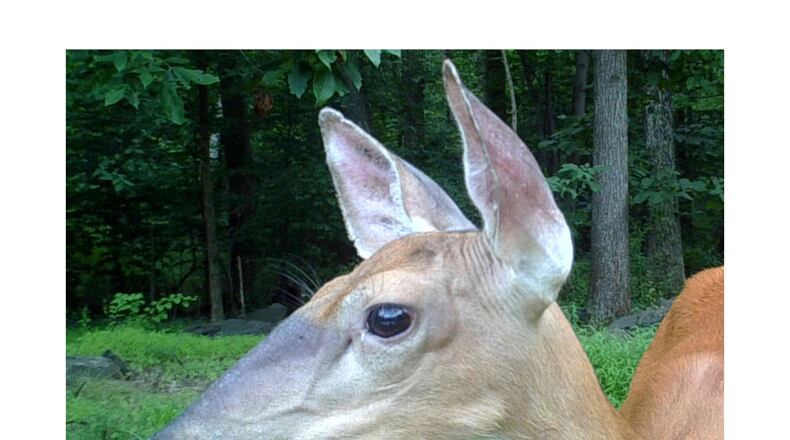These seemingly endless days of 90-degree highs and 100-degree heat indexes have us retreating to our air-conditioned homes, offices and malls to stay cool.
Georgia’s wild creatures, though, can’t do that. Even so, they have evolved their own ways to cope with summer’s sizzling temperatures.
Many animals do what we do — simply find a shady spot and stay there during the hottest part of the day. They also tend to eat less and slow down their daily activities.
Many songbirds, for instance, stop calling and foraging for food and retire to thick shrubs and dense tree canopies during the heat of the day. Even sun-loving butterflies seek out deep shade — including the undersides of leaves — when temperatures approach 95 degrees or more.
Frogs, toads, lizards and snakes, which are especially susceptible to the hot summer sun and may die after only a few hours’ exposure to it, seek shelter under rocks and logs and in burrows.
Losing body hair is a major way that furry mammals deal with heat. For instance, as temperatures heat up, hormones in white-tailed deer cause them to shed their heavy, gray winter coats and replace them with thinner, reddish brown pelages of summer. The thinner coats allow more cooling air to reach the deer’s skin.
Some animals have their own air conditioning — their ears. The ears of deer, rabbits, foxes and other animals are engorged with blood vessels that help radiate heat from their bodies into the air. Bats and some birds, such as vultures and cormorants, also release heat by stretching out their wings.
Humans also have natural cooling systems — sweating. Many animals, however, can’t sweat. Instead, they pant, or breathe rapidly like dogs to increase volumes of air moving in and out of their bodies. Birds do something similar — they keep their bills open during hot weather and pant. A bird may get rid of half its excess body heat this way.
But perhaps the greatest need for wild creatures during hot weather is water. You can help by providing a steady supply of fresh, clean water — preferably in a birdbath. In fact, my yard’s birdbath is the most popular spot for birds right now.
IN THE SKY: From David Dundee, Tellus Science Museum astronomer: The moon will be new on Tuesday. Mercury, Venus, Mars and Jupiter are low in the east just a few hours before sunrise. Saturn rises at about midnight.
Charles Seabrook can be reached at charles.seabrook@yahoo.com.
About the Author
Keep Reading
The Latest
Featured


